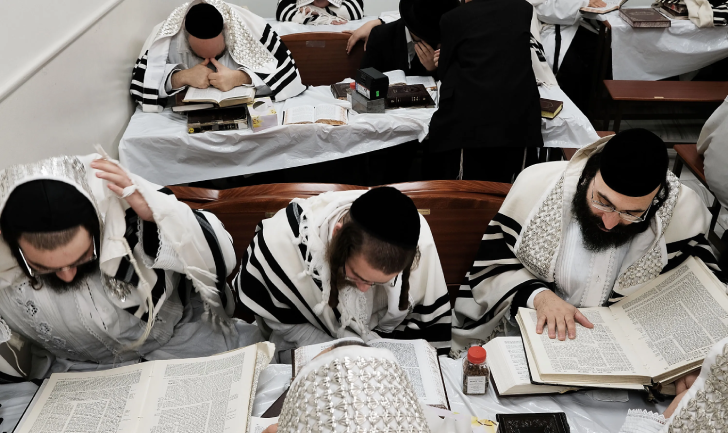Yom Kippur
Yom Kippur, also known as the Day of Atonement, is the holiest day in the Jewish calendar. It is observed with a 25-hour period of fasting, prayer, and reflection, where Jews seek forgiveness for their sins and strive for spiritual purification. Yom Kippur is the culmination of the Ten Days of Repentance, which begin with Rosh Hashanah (the Jewish New Year). During this period, individuals reflect on their actions from the past year and seek forgiveness from God and others.

Yom Kippur, the Day of Atonement, has its origins in ancient Jewish tradition and is mentioned in the Torah, the central text of Judaism. The day is considered the holiest of the Jewish year, and its history is deeply tied to themes of repentance, atonement, and spiritual purification.
Biblical Origins:
Torah Commandments: Yom Kippur is first mentioned in the Torah, particularly in the books of Leviticus and Numbers. In Leviticus 16:29-30, it states: “This shall be a statute forever for you: In the seventh month, on the tenth day of the month, you shall afflict your souls and do no work… For on that day the priest shall make atonement for you, to cleanse you, that you may be clean from all your sins before the Lord.”
High Priest Rituals: In ancient times, Yom Kippur was the one day of the year when the High Priest of Israel would enter the Holy of Holies in the Temple of Jerusalem. There, he performed a series of elaborate rituals to atone for the sins of the people of Israel. A central part of the ritual involved the scapegoat ceremony, where the High Priest would symbolically transfer the sins of the people onto a goat, which was then sent into the wilderness.
Post-Temple Period:
Second Temple Destruction (70 CE): After the destruction of the Second Temple by the Romans in 70 CE, Jews could no longer perform the Temple rituals, including the Yom Kippur sacrifices. The focus of Yom Kippur shifted from Temple-based rituals to personal repentance, prayer, and fasting.
Synagogue-Based Worship: With the Temple gone, the synagogue became the center of Jewish worship, and the Yom Kippur liturgy evolved to include lengthy prayers, communal confession of sins (called Vidui), and readings from the Torah. The Kol Nidre prayer, which is recited at the beginning of Yom Kippur Eve, also became an important part of the service, releasing individuals from vows made during the past year.
Rabbinic Development:
Talmudic Era: During the Talmudic period, rabbis further developed the themes and practices of Yom Kippur. They emphasized Teshuvah (repentance), Tefillah (prayer), and Tzedakah (charity) as key elements of atonement. The rabbis also taught that while Yom Kippur atones for sins between individuals and God, interpersonal sins must be addressed by seeking forgiveness directly from those who were wronged.
Modern Observance:
Day of Fasting and Reflection: Today, Yom Kippur is observed with a 25-hour fast, starting at sunset on Yom Kippur Eve and ending at nightfall the following day. It is a solemn day dedicated to prayer, reflection, and seeking forgiveness from God and fellow human beings.
Synagogue Services: The day is marked by multiple prayer services, including the Kol Nidre service on the eve of Yom Kippur, and the Neilah service, which closes the day. The Vidui prayer, a communal confession of sins, is recited multiple times throughout the day.
Spiritual Significance: For many Jews, Yom Kippur is a time of profound introspection, a chance to reflect on the past year, ask for forgiveness, and make commitments for spiritual improvement in the year to come.
Key Themes of Yom Kippur:
Atonement and Forgiveness: Yom Kippur is centered on asking for and granting forgiveness, both between individuals and God, and between individuals themselves.
Repentance (Teshuvah): It emphasizes the process of personal repentance, self-reflection, and reconciliation.
Spiritual Cleansing: The day is seen as an opportunity for spiritual renewal and purification.
Yom Kippur’s long history reflects the Jewish people’s enduring commitment to reflection, forgiveness, and spiritual renewal.


